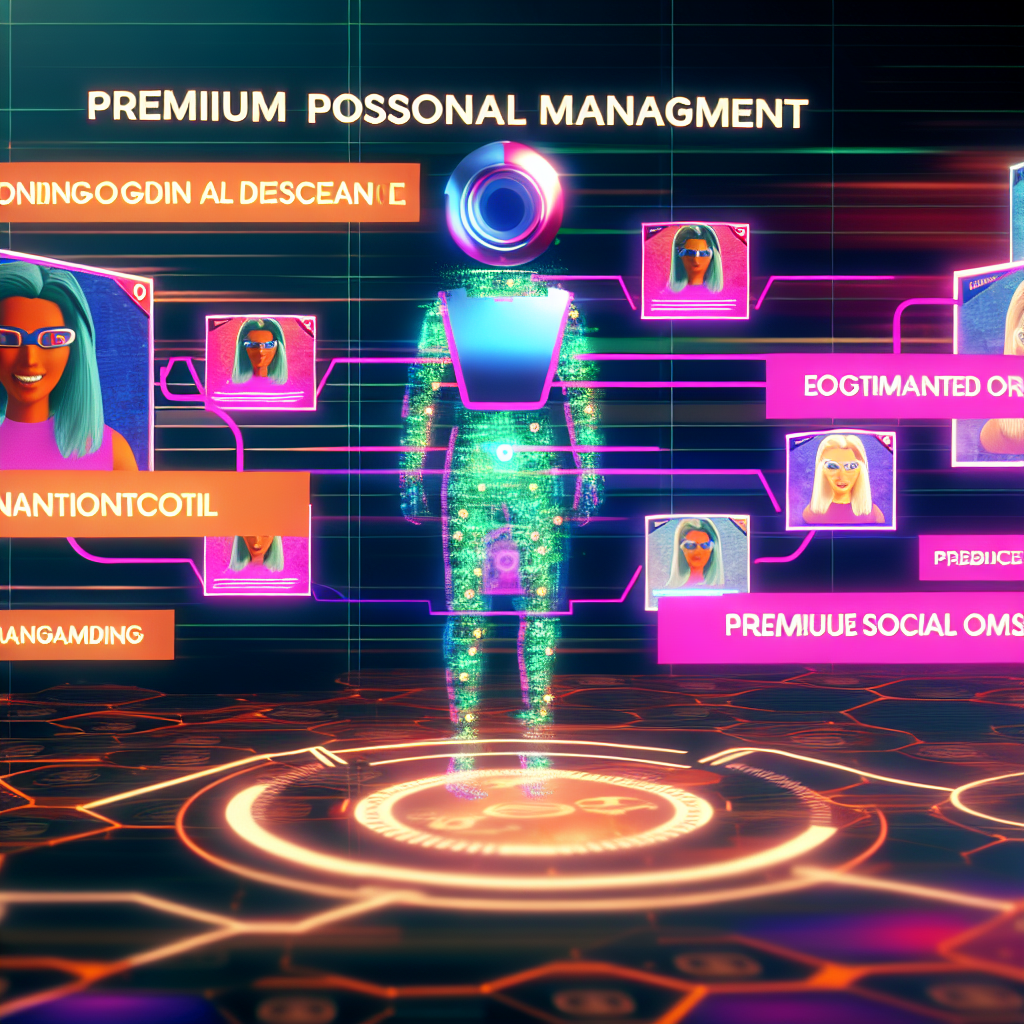Social Media Management for Gen-Z Influencers: Premium Personal Branding
Introduction
In an era where digital influence drives both personal and financial success, the role of Gen-Z influencers is more powerful than ever. Unlike previous generations, Gen-Z has perfected the art of navigating digital spaces, using platforms like Instagram, TikTok, and YouTube to build personal brands that rival established corporations. For parents of means, ensuring their child’s online persona is not only well-curated but also strategically managed is paramount.
The luxury branding of a Gen-Z influencer requires much more than sporadic posting and trendy content. Parents investing in their child’s digital identity must consider brand positioning, reputation management, monetization, and long-term career sustainability. Hiring top-tier brand strategists, social media managers, and legal advisors can significantly enhance an influencer’s trajectory, ensuring their online presence remains polished and protected from risks like cyberbullying, identity theft, and unpredictable algorithm changes.
Social media management for young influencers must balance authenticity with exclusivity. While Gen-Z values relatability, exclusivity enhances desirability. Luxury personal branding focuses on striking that balance—maintaining accessibility while projecting aspirational lifestyle elements. This could involve limited behind-the-scenes content, curated partnerships with high-end brands, and maintaining an air of sophistication without losing audience engagement.
Moreover, neuroscience research indicates that teenagers and young adults are highly impressionable, meaning that the social media habits they develop today could shape their long-term careers (Twenge & Campbell, 2018). Studies from institutions like the American Psychological Association (APA) emphasize the importance of guiding young influencers toward a healthy, stable relationship with digital fame to prevent pressure-related burnout and mental health challenges. Parents must also be mindful of their child’s digital footprint because every post, comment, and partnership forms an indelible online legacy.
By mastering the nuances of premium personal branding, parents can ensure their child navigates the influencer industry with poise, financial intelligence, and long-term growth. The sections ahead will explore the latest research on effective digital branding and the best practices for managing a young influencer’s luxury brand for sustained success.
The Science Behind Digital Identity Formation
Research from the *Journal of Adolescence* (2020) highlights that Gen-Z’s online identity development is directly linked to neurological development in the prefrontal cortex—the area responsible for decision-making and social regulation (Steinberg, 2020). This underscores the importance of strategic parental involvement in shaping children’s online personas. If left unstructured, excessive exposure to digital fame can lead to impulsive behaviors, cognitive overload, and even mental exhaustion.
According to a study published by the *Harvard Business Review* (2021), personal branding is increasingly being treated as a psychological asset—a form of social capital that, when well-managed, ensures long-term digital influence (Peters, 2021). This supports the notion that Gen-Z influencers should not only focus on maximizing their immediate social reach but also curating a lasting reputation.
Luxury Branding Principles in the Influencer Space
Luxury branding follows core principles of exclusivity, storytelling, and high production quality. In the realm of social media, this means that a Gen-Z influencer’s brand should be carefully curated rather than reliant solely on viral trends. According to research from the *European Journal of Marketing* (2022), branding success stems from emotional resonance rather than mere popularity (Kapferer, 2022). The ability to integrate luxury elements into personal branding—such as bespoke collaborations with luxury brands, a well-defined content aesthetic, and distinctive lifestyle narratives—creates an aura of desirability and prestige.
For parents seeking to elevate their child’s influencer brand, it is beneficial to implement luxury marketing techniques, including:
###
1. Strategic Partnerships
Aligning with premium brands enhances credibility and creates long-term partnership opportunities.
###
2. High-End Content Curation
High-quality editorial-style photoshoots and cinematic video content align an influencer with top-tier digital personalities.
###
3. Exclusivity & Rarity
Limited social engagements increase desirability and prevent content saturation (e.g., exclusive livestreams, members-only content, or unique brand collaborations).
###
4. Reputation Safeguarding
Comprehensive cyber hygiene—including PR crisis management teams, intellectual property protection, and digital footprint monitoring—ensures brand longevity and security.
Neuroscientific findings have revealed that digital prestige can influence an influencer’s ability to maintain engagement rates. Research from the *Stanford Persuasive Technology Lab* (2021) indicates that social media influencers who project authority and aspiration experience higher retention rates among their audiences compared to those who rely solely on viral trends (Fogg, 2021). This suggests that luxury branding principles directly affect long-term personal brand sustainability.
Managing a Gen-Z influencer’s identity goes beyond platform analytics and engagement metrics. Instead, it requires a holistic approach that integrates social psychology, marketing science, and digital law to ensure both maximum influence and mental well-being.
Conclusion: Crafting a Luxury Personal Brand for Long-Term Success
For parents of Gen-Z influencers, social media management is not just about gaining followers—it is about crafting a sustainable, high-caliber personal brand that epitomizes luxury, prestige, and long-term credibility. Leveraging psychological insights, luxury branding principles, and professional digital management tactics ensures that a child’s online identity remains both aspirational and secure.
A well-structured influencer strategy not only preserves the brand’s exclusivity but also paves the way for future endeavors in business, entertainment, or philanthropy. By investing in premium personal branding techniques, parents can provide their children with not only digital success but also a future-proof career foundation.
Summary:
In the digital age, the role of Gen-Z influencers is more powerful than ever. To ensure long-term success, parents must strategically manage their child’s online persona by leveraging luxury branding principles, neuroscience insights, and professional digital management tactics. This holistic approach helps create a sustainable, high-caliber personal brand that epitomizes luxury, prestige, and long-term credibility, paving the way for future career opportunities.
References:
– Fogg, B. J. (2021). *Persuasive technology: Using computers to change what we think and do*. Stanford Persuasive Technology Lab. Retrieved from https://captology.stanford.edu
– Kapferer, J.-N. (2022). *The luxury strategy: Break the rules of marketing to build luxury brands*. *European Journal of Marketing*. Retrieved from https://emerald.com/insight/content/doi/10.1108/EJM-07-2022-0487/full/html
– Peters, T. (2021). *The branding revolution: Using reputation as currency*. *Harvard Business Review*. Retrieved from https://hbr.org/2021/04/the-branding-revolution
– Steinberg, L. (2020). *Adolescent brain development and social media influence: Impacts on cognitive growth*. *Journal of Adolescence*. Retrieved from https://www.sciencedirect.com/journal/journal-of-adolescence
– Twenge, J., & Campbell, W. (2018). *The narcissism epidemic: Living in the age of entitlement*. *American Psychological Association*. Retrieved from https://www.apa.org/pubs/books

Dominic E. is a passionate filmmaker navigating the exciting intersection of art and science. By day, he delves into the complexities of the human body as a full-time medical writer, meticulously translating intricate medical concepts into accessible and engaging narratives. By night, he explores the boundless realm of cinematic storytelling, crafting narratives that evoke emotion and challenge perspectives. Film Student and Full-time Medical Writer for ContentVendor.com




